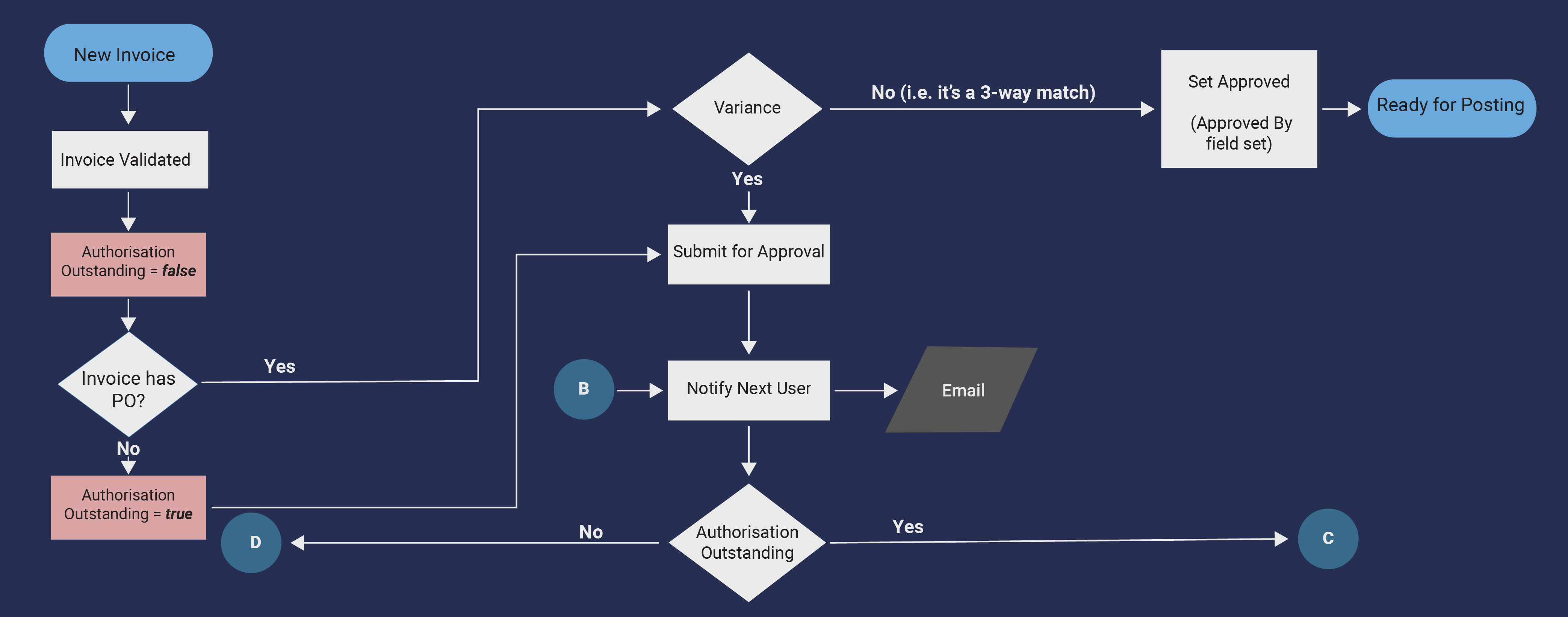Home / Blog / Why Integrate your ERP Software?
Why Integrate your ERP Software?
Published: 28th June 2022
Businesses today are more diverse than ever before with companies having more individual needs in terms of their structure, practices, processes and reporting. One area that has increased, and is still on the rise is the number of data systems companies use. These include systems such as:
- ERP (Enterprise Resource Planning)
- Business Intelligence or Data & Analytics
- Human Resource Management system
- Environmental Management system
- AP Automation & Document Management system
- Mobility & Approvals systems
- CRM (Customer Relationship Management)
- eCommerce
- Financial & payroll systems and,
Most modern businesses have an ERP system that acts as their primary system and main data point. An integrated ERP solution has the ability to report on a company’s overall performance, giving insight into operational improvement and provides a single source of truth for decision makers. Because of this companies often need to have an integrated solution in place so that data can be passed between their primary solution and other software.
Shouldn’t my ERP meet all my requirements?
Many Tier 1 solutions (e.g. SAP and Oracle) will be able to provide a large proportion of your company’s requirements. However these Tier 1 solutions are often too expensive for small-medium sized businesses (SME’s) to justify the cost.
For SME’s, Tier 2 ERP solutions (such as Pronto Xi) are ideal, providing a lower cost ‘base’, with the idea to invest in complimentary software to add extra functionality to the system. This “best-of-breed” adoption approach to software brings many benefits and is a great way for SME’s to have a tailored and powerful solution purpose built for their company.
Why integrate my ERP software?
By integrating your additional software with your ERP system, you are able to have greater control of the flow of information within your company. Depending on your company’s requirements, you can control which way it flows e.g. mono directional (one way) or bi directional (two way). Having your data in one accessible location such as your ERP also allows you to make changes or updates that will flow through to the systems that you’ve integrated with.
This cross-system flexibility allows you to take advantage of functionality that might not be available within your core system, but is contained in another that you have invested in. It also allows you to adopt new technology without needing to upgrade your entire ERP solution. In many cases, integration is done seamlessly, so that the experience appears to be one system to an end-user, but in fact may be made up of many different systems and data sources interacting behind the scenes.
How do I know if I need to integrate?
Ultimately, it comes down to your company needs. If you find that your key operational data is housed in multiple places that require you to make changes in each individual software, you will find that integrating your systems will increase productivity by eliminating double handling.
Furthermore, having disparate systems means that reporting will take longer to both consolidate and produce. This can be a significant pain point for companies that rely upon trustworthy information to make quick decisions (e.g. mining or construction etc). It also can lead to reporting errors and decreased security for areas such as fraud detection due to the difficulty of cross checking payments and invoices automatically.
What are the options for integrating an ERP?
ERP systems such as Pronto Xi, have developed a number of REST API’s that allow information to be called from other systems. With these API connectors in place, companies can define exactly how they want the information to be shared.
Sometimes, there’s a specific need you have for sharing information between systems or reporting that can’t be achieved with a standard connection. Custom development can be a great way to overcome this issue and also allows you to tweak other aspects of the system to best suit your processes.
How do I get started with my ERP integration project?
Integration is a specialised task that requires help of an experienced software partner.
Scope Systems have decades of experience in facilitating successful ERP integration projects in a variety of industry verticals. With mining being our specialty we understand the complexities involved in managing single-site, multi-site and international operations. We also have a number of best-of-breed solution partners that are suited to extending the functionality of your core ERP in the mining industry.
If you’re interested in learning more about how we can help with your ERP integration, contact us today.
Discover more.
24th January 2024
Entering a new year allows us to examine the top risks and opportunities that are top of mind for mining and metals industry executives in 2024. If you haven’t already read it, Ernst and Young's report - "Top 10 business risks and opportunities for mining and metals in 2024" has detailed breakdowns of the key industry trends.
Read More
6th October 2023
Scope Systems and PeopleTray Announce Strategic Partnership to accelerate the delivery of workforce management software to the mining and mining contracting market.
Read More
26th July 2023
The Parked Supplier Invoice Approval System is a Pronto Xi enhancement created by Scope Systems that provides you with additional functionality by adding the ability to edit and include an approval process for invoices.
Read More
14th March 2023
The RIU Explorers conference this year saw a packed full house of over 1800 delegates and 200 exhibitors in the Esplanade Hotel, Fremantle. Both exhibitors and attendees there had a pretty bullish outlook, despite the repeated doom and gloom in the media.
Read More
29th November 2022
With staff retention a key issue currently facing the mining industry, discover why digital automation is key to increasing you workforce engagement.
Read More
13th October 2022
The mining industry has once again faced many challenges this year, with a major one again being the microscope the industry has been put under for its male-dominated culture. This year’s Australian Mining Risk Forecast has been recently released by KPMG and it’s an interesting read on what is top of mind for mining executives.
Read More
18th August 2022
Take a look at the year in review. From the RIU Explorers conference to Diggers and Dealers, our Sales and Marketing Manager Sonia Turner give her summary of the financial year.
Read More
8th August 2022
E-invoicing isn’t a new idea, the first electronic invoices were sent over 30 years ago through an electronic data interchange. Since then, e-invoicing has developed into a safe and secure way for suppliers to automatically and digitally exchange invoice information to customers through a secure network. So why move to e-invoicing and what are the benefits it can give to your company?
Read More
28th July 2022
Starting up an exploration venture requires careful planning of capital, with keeping costs to a minimum one of the highest priorities for a company. One aspect of keeping costs low can include the business systems designed to help control expenditure.
Read More
12th July 2022
Why partner with a software solutions specialist? Is it worth considering or are you better off managing on our own? To answer these questions, let’s look at what a specialist like Scope Systems can bring to the table.
Read More
28th June 2022
Companies today are more diverse then ever, finding they to have multiple software solutions to add extra functionality to their system. Having an integrated solution allows all your systems to 'talk' to each other , with your ERP acting as your primary system.
Read More
14th June 2022
For some companies, the idea of training staff to use new or existing software is a no brainer, recognising the benefits to the company from the outset. Others are more hesitant, with questions such as if there will be any tangible benefit, what will the true ROI be and what’s stopping staff jumping ship to another company after.
Read More
30th May 2022
From March 2022 a new domain name category has become available for Australian domain names, with the new, shorter .au name arriving.
Read More
24th May 2022
Budgeting is one of those unavoidable tasks that most of us would prefer not to do, investing in a budgeting solution can help improve your processes.
Read More
4th May 2022
A password is the first line of defence in protecting not only your own personal data, but also confidential company data. Check out our tips for creating a strong and memorable password.
Read More
19th April 2022
Are you ready for the upcoming reporting changes for STP Phase 2? Learn what you need to do now to prepare and what to expect.
Read More
5th April 2022
For data to be transformed into understandable information it first needs to be stored somewhere accessible, most commonly in a Data Warehouse or Data Lake.
Read More
28th March 2022
With accurate inventory data, you can measure supplier performance and help reduce extended lead times across your mining supply chain.
Read More
24th March 2022
Ensuring your multiple tenements activities are being recorded and reported on is vital, as failing to do so can affect your whole mining operation and lead to costly penalties.
Read More
14th March 2022
An inventory management solution will give mining companies data-driven insights to help increase profits by focusing on having the right stock to meet demand.
Read More
{"slides_column":1,"slides_scroll":1,"dots":"true","arrows":"true","autoplay":"true","autoplay_interval":2000,"speed":300,"lazyload":""}




















